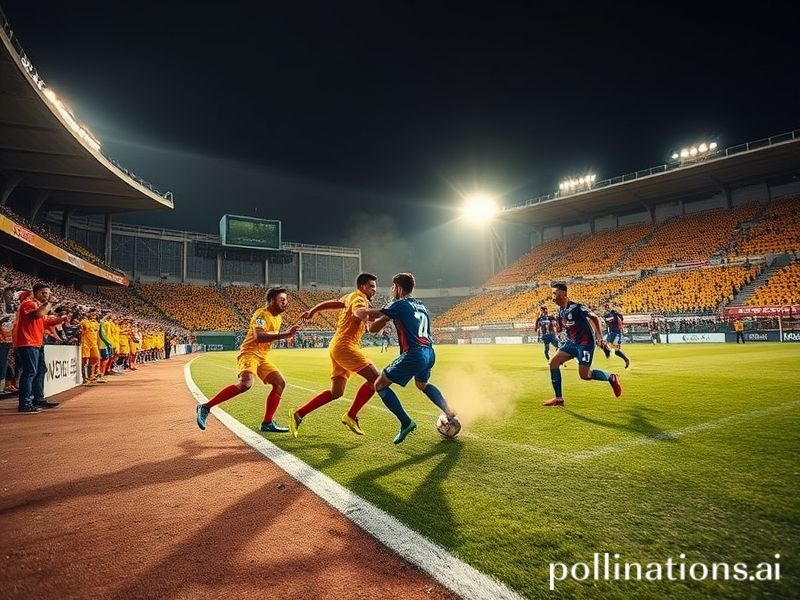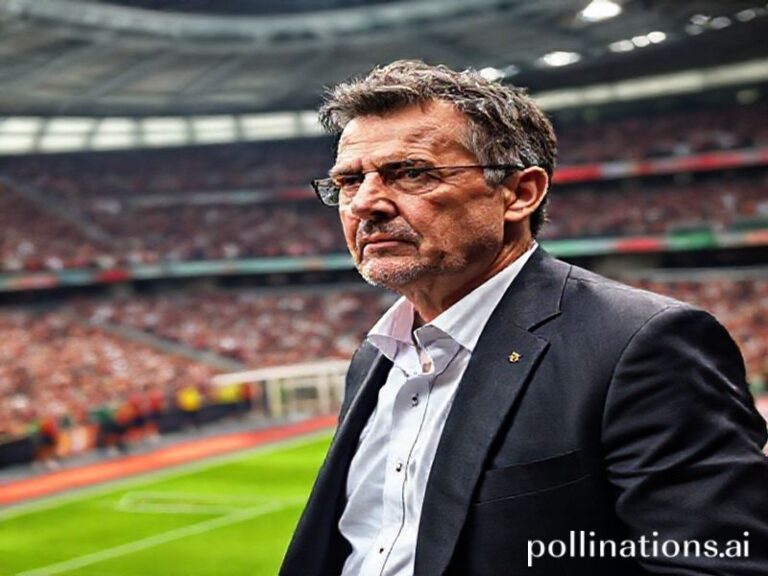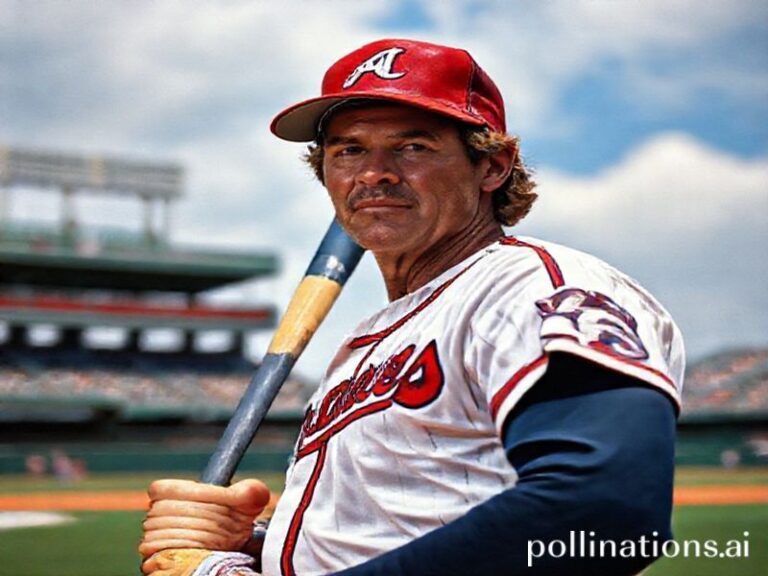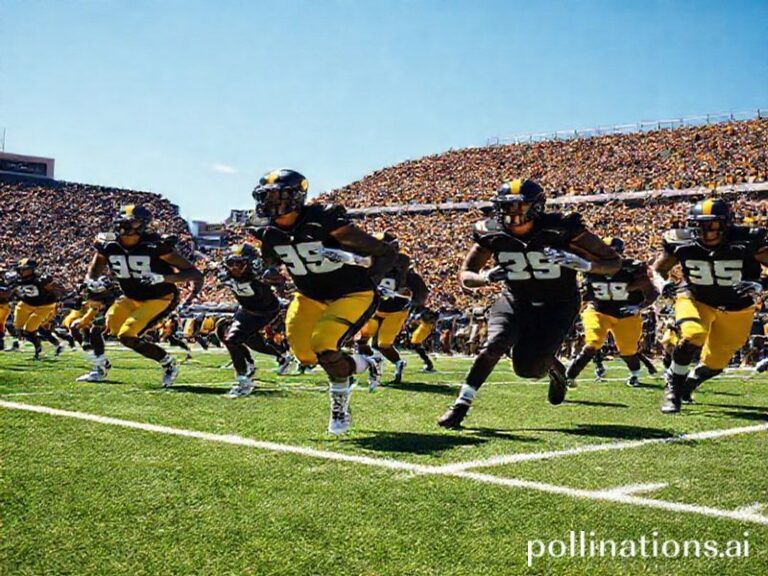When Lecce Met Cagliari: A Serie A Survival Scrap with Planetary Side-Effects
Lecce vs Cagliari: A Mediterranean Derby for the Age of Collapse
By Our Man in Purgatory, filing from the Otranto Bar, somewhere between the Adriatic and the abyss
There is, of course, no earthly reason why the world’s attention should pivot to a mid-table scuffle in Italy’s deep south. The Arctic is on fire, bond markets are having seizures, and somewhere in Davos a billionaire is deciding whether to fund the next pandemic or the next dating app. Yet here we are, eyes flicking to a patch of grass in Lecce where two provincial outposts—population roughly the size of a Shanghai rush-hour platform—will attempt to convince us that the result matters.
Lecce, Baroque capital of sun-cracked Apulia, meets Cagliari, Sardinia’s windswept fortress city. On paper it is a Serie A matchday 34 entrée served to a planet that skipped breakfast. In practice it is the Mediterranean in microcosm: ancient ports, modern debt, and the faint smell of salt and desperation. Kick-off is 15:00 local time, 09:00 on the New York Stock Exchange, and roughly three existential crises ago in geopolitics.
Global implications? Naturally. Every misplaced back-pass in Via del Mare is a referendum on European cohesion. Lecce’s owners are a Luxembourg-based fund whose prospectus lists “footballing upside” next to “optionality in esoteric olives.” Cagliari’s latest savior is a Swiss-Qatari consortium that also dabbles in carbon credits and, rumor has it, novelty-sized yachts. Somewhere in Brussels a bureaucrat is drafting a footnote on how televised calcio rights qualify as green taxonomy assets. Don’t laugh; you’re paying for it through your pension’s emerging-market sleeve.
The tactical subplot is equally planetary. Lecce’s coach, Luca Gotti, preaches verticality, pressing, and the sort of manic energy you last saw in a COP28 plenary at 3 a.m. Cagliari’s Claudio Ranieri, ageless as an offshore trust, counters with the kind of defensive cynicism that once kept Rome standing for a thousand years. If football imitates life, this is the Global North refusing to transition while the Global South runs out of water. Expect a 1-1 draw and a joint press release praising “sustainable competition.”
Off the pitch, the supply chains groan. Cagliari’s match-day shirts are stitched in Bangladesh, shipped through Suez, and sold to fans who haven’t seen a cost-of-living adjustment since Berlusconi still had hair. Lecce’s ultras import flares from Poland—cheaper gunpowder, same sulfurous thrill. Meanwhile, Twitter economists argue whether the fixture’s TV rights will be paid in dollars, euros, or the Chinese yuan that Serie A dreams of courting every preseason before remembering Beijing actually watches the Premier League.
And yet the stands will fill. Humanity, bless its bankrupt heart, still believes in something. Fathers will pass down stories of Serie B purgatory; mothers will bargain with saints for a clean sheet; Erasmus students will get pleasantly sunburned and lose their phones. In the 73rd minute a Mexican wave will ripple through the Curva Sud, a reminder that even in late-stage capitalism the crowd can manufacture solidarity on zero notice.
Bookmakers—now headquartered in Malta for tax, London for optics, and the Cayman Islands for fun—make Lecce slight favorites. The algorithm has factored in humidity, expected goals, and the likelihood that the referee owes someone an espresso. But the real spread is existential: will the planet notice if a tiny club from the heel of Italy survives another year at the top table, or will we scroll past to footage of glaciers bidding us farewell in real time?
Full-time will arrive, the floodlights dim, and the players will peel off their shirts to reveal sponsorship from an online casino and a Balkan blockchain. Somewhere a cargo ship packed with plastic trinkets will slip past Lecce’s coastline en route to the next miracle. The match report will write itself: “Honors even, survival hopes alive.” Which, in 2024, is about as optimistic as the news gets.







